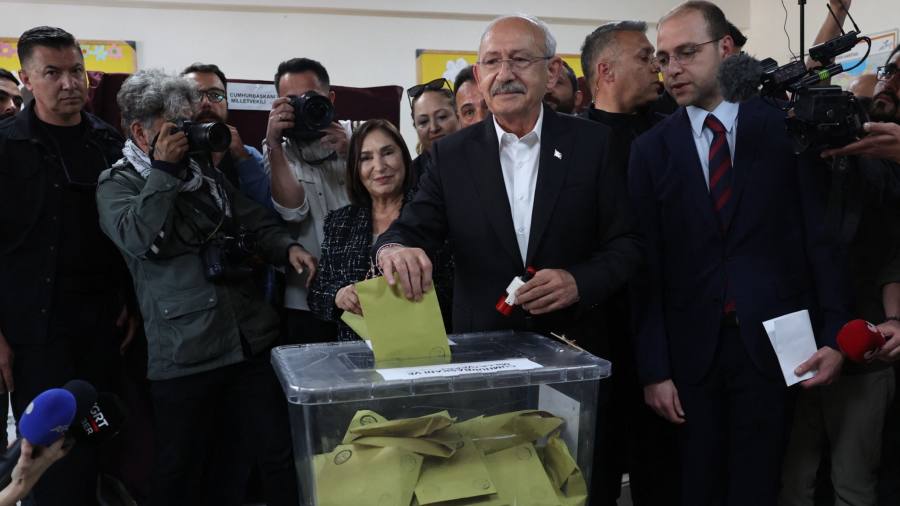Turkey’s united opposition said it had found irregularities in thousands of ballot boxes used in Sunday’s first-round presidential election, but conceded that this was not why their candidate Kemal Kılıçdaroğlu lost out to President Recep Tayyip Erdoğan.
Kılıçdaroğlu’s Republican People’s party (CHP) said on Wednesday that it had filed a complaint with Turkey’s election board over the results from 2,269 of the 201,807 ballot boxes in the presidential race. Erdoğan won the contest by almost 5 percentage points to put himself in pole position for the May 28 run-off vote.
Muharrem Erkek, CHP deputy chair for legal and election affairs, told a press conference in Ankara that even if its objections, which related to about 1 per cent of ballot boxes, “doesn’t change the general results, we follow every single vote”.
Some social media content around the election had sought to explain Kılıçdaroğlu’s failure to garner nearly as much support as pre-election polls suggested as a sign of widespread fraud. “Misinformation . . . tires us all, unfortunately,” Erkek said, referring to individuals who were making claims without sufficient information.
Kılıçdaroğlu, who represents a six-party coalition, won the support of 44.9 per cent of the electorate on Sunday, compared with Erdoğan’s 49.5 per cent, with two other candidates picking up the remaining votes. As neither of the main contenders scored a majority the contest goes to a second round.
“There was no winner in the May 14 election,” said Erkek, adding that since “the president didn’t receive a vote of confidence” it was crucial that opposition supporters kept up their fight to end Erdoğan’s two decades in power by turning out in large numbers for the runoff.
The opposition alliance also raised objections related to about 2 per cent of ballot boxes in the parliamentary race, which was won by a coalition led by Erdoğan’s Justice and Development party (AKP), and the ultranationalist Nationalist Movement party (MHP). The president’s parliamentary coalition was set to maintain its majority in the legislature, with 323 of 600 seats, according to data collated by Turkey’s state media.
International election observers have said that while the election day itself was mostly peaceful and that the election board appeared to handle technical aspects effectively, Erdoğan enjoyed an unfair advantage in the lead-up to the vote.
“Public broadcasters clearly favoured ruling parties and candidates,” Jan Petersen, who led an election observation mission from the Organization for Security and Co-operation in Europe, said at a press conference this week. He added that “the majority of private national TV channels . . . were also clearly biased towards the ruling parties in their coverage”.
He also criticised Turkey’s government for putting “pressure on [some] opposition politicians and parties” and said the election authorities’ work was “marked by a lack of transparency, inadequate communications and concern over independence”.
Erdoğan will on Friday begin a two-day visit to the south-eastern region hit by the massive February 6 earthquake. The president defied expectations by performing strongly across the earthquake zone, despite projections that his government’s stuttering response to the disaster would erode support for him in those regions. Kılıçdaroğlu’s schedule has not yet been published.
Read the full article here




